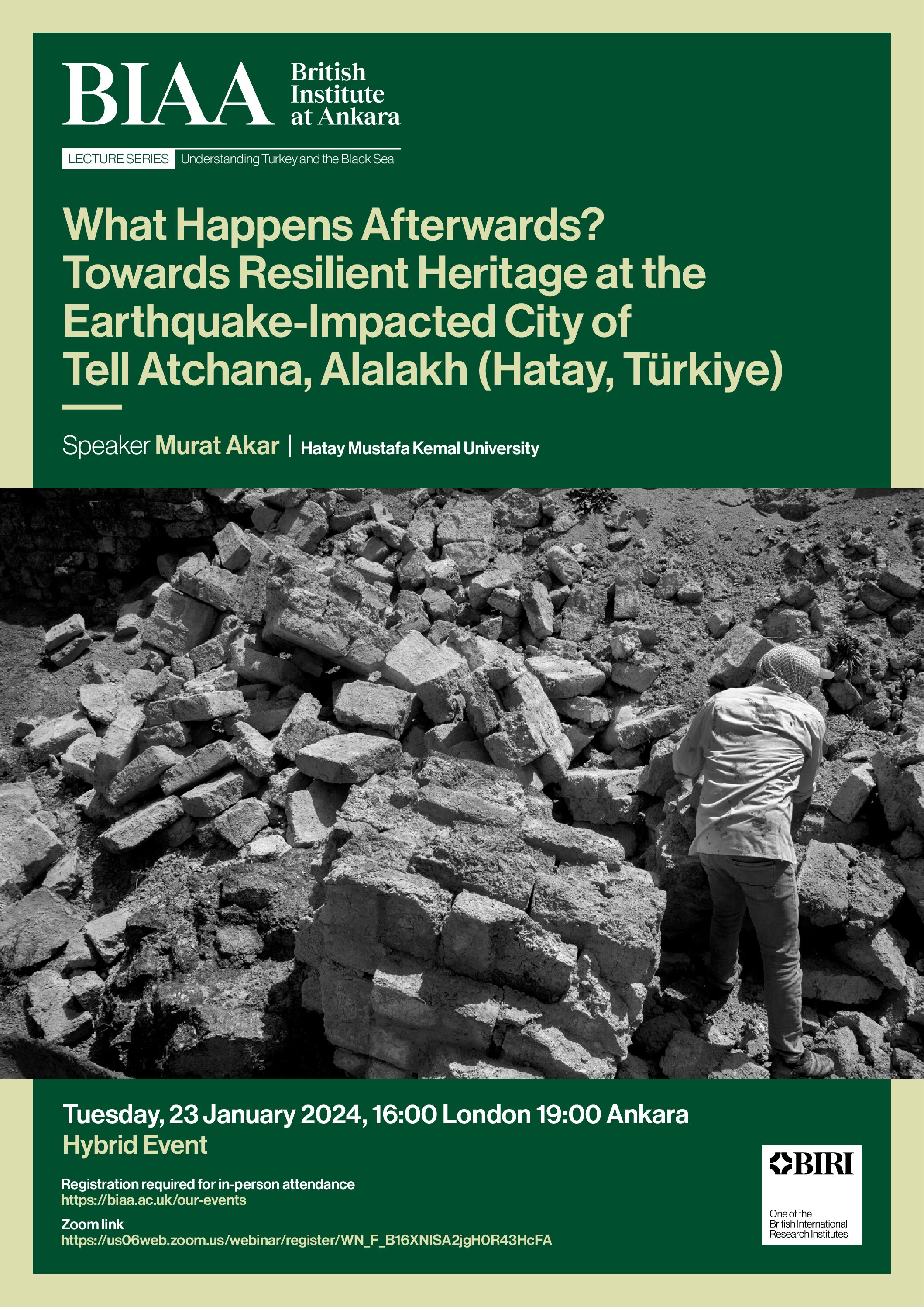
Location BIAA, 154 Atatürk Bulvarı, and online
Date and time
Tuesday 23 January 2024
16:00 - 17:30 (London GMT)
19:00 - 20:30 (Ankara UTC+3)
Speakers
Murat Akar
Hatay Mustafa Kemal University
The contradictory concepts of digging up the past and preserving the past form a duality. The very act of unearthing requires a causality of irreversible actions. This creates a dilemma for archaeologists with regard to where and when to stop digging; what to preserve and what not to. This decision-making process is subjective and informed by individual or organizational agendas. This talk addresses these contradictory concepts through the legacy Bronze Age capital city of the Kingdom of Mukish: Tell Atchana, Alalakh (Hatay, Türkiye), currently under the care of a team of archaeologists, conservators and cultural heritage specialists to preserve the severely damaged mud brick monuments due to the 6th February Kahramanmaraş earthquakes.
Murat Akar obtained his BA from Bilkent University Department of Archaeology and History of Art; his MSc in Settlement Archaeology from the Middle East Technical University and his PhD in Near Eastern Archaeology from the University of Florence in Italy. He has previously held research fellowships at ANAMED and the Koç University, Archaeology and History of Art Department. He has been teaching at Hatay Mustafa Kemal University, Department of Archaeology since 2016. He is the director of the Amuq Valley Regional Survey Project and the excavations at Tell Atchana, Alalakh. He is also the scientific advisor to the excavations at Toprakhisar Höyük run by Hatay Archaeological Museum. His research areas include architecture, memory, and landscape studies, particularly for the 2nd millennium BC Anatolia, the Near East, and the Levant. His current research addresses the role of climate in the longue durée for understanding the continuously shifting population dynamics and cross-cultural encounters in Eastern Mediterranean contexts as part of the Tübitak 1001 project entitled “Geological and Archaeological Traces of Climatic Changes in the Amuq Valley of Hatay during the Holocene”.